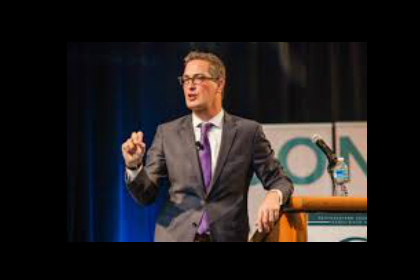Two-thirds of foundation CEOs believe it’s possible for foundations to make a significant difference in society but only one of every eight believes foundations are making a difference. Yet most CEOs believe foundations can take greater advantage of their unique role to experiment, innovate, collaborate and convene.
Those are among the findings of a new report by The Center for Effective Philanthropy (CEP), commissioned by the William and Flora Hewlett Foundation on the occasion of its 50th anniversary symposium, “From Promise to Progress in the Social Sector.”
The 32-page report, “The Future of Foundation Philanthropy: The CEO Perspective,” is based on responses from 167 foundation CEOs, and another 41 CEOs who participated in in-depth interviews in May and June.
CEP analyzed four questions posed to foundation CEOs:
- What is the current state of foundation philanthropy?
- How prepared are foundations to deal with changes they believe will affect society?
- What are CEOs’ concerns about the future of foundation philanthropy?
- How do foundations need to change to address society’s future needs?
- What is the unique role that philanthropy can play, relative to other sectors?
Much of what CEOs see as standing in their way is within their control to change and they identify ways that foundations can realize their potential.
There were few differences among respondents based on demographic characteristics of their foundations. A clear majority of CEOs shared similar views on many questions asked in the survey and interviews.
“Our hope is that this report reflects not just the challenges and concerns that CEOs identify but also their ideas about promising practices and the potential for a bright future ahead,” according to the report. “We hope that this report will spur the conversations that CEOs themselves believe need to happen.”
For foundation leaders, wealth and inequality top the list of pressing issues that will influence society in the coming decades at 65 percent, followed by climate change and the environment, 58 percent, and education, 40 percent. Wealth and inequality also were the most pressing issue that will influence foundation philanthropy, 48 percent, followed by government, 29 percent, and changing demographics, 23 percent.
“The data reveal leaders looking in the mirror who are not entirely pleased with what they see,” said Phil Buchanan, president of CEP. “Their concerns suggest they’re asking fundamental questions of themselves about how they can do better. The changed American political climate and uncertainty of the moment makes the discussion of the future of philanthropy that these findings will prompt all the more pressing and important,” he said.
The report is available for free download on CEP’s website.
